Another Timbre TimHarrisonbre
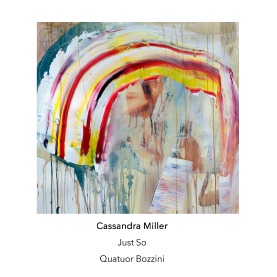
at129 Cassandra Miller ‘Just So’ Quatuor Bozzini
1 - Just So (2008/18) 2:33
2 - 5 Warblework (2011) 15:25
6 - About Bach (2015) 24:13 youtube extract
7 - Leaving (2011) 5:42
Clemens Merkel & Alissa Cheung (violins)
Stephanie Bozzini (viola) Isabelle Bozzini (cello)
Interview with Cassandra Miller
Extracts from the extended interview with Cassandra Miller in the booklet accompanying the Canadian Composers Series CDs.
[……]Who did you meet and work with in Holland?
The most important figure was Richard Ayres, who was a huge influence. And Yannis Kyriakides was a great teacher; I learned a lot from him. Also Den Haag was a strange place too; they really identify as outsiders – almost too much – but there was some lovely strange stuff happening. I was there for three years, 2005 to 2008, and there are works I wrote at that time which still feel very much like me, for example Orfeo and O Zomer! In fact there are even a few things from the period at the University of Victoria that I still feel fond of. There was one year there in particular where I just felt able to write a lot of weird stuff, some of which I like even now.
Ok, so if you’re a composer and are not part of a school or tendency, so you don’t have any kind of method that is given to you, and you’re doing individual ‘weird stuff’, as you put it, with an infinity of possible paths, does that ever strike you as being difficult? Or are there always lots of ideas and different approaches for new pieces buzzing round in your head?
Yes ‘method’....I don’t know what that is! Isn’t the fun of composing making up your own particular method for whatever piece you’re writing? I mean, I understand that there is this perceived need for ‘method’, but I think it must come from a different cultural context. It must come from feeling that you’ve got a place in history, or feeling that you’ve got a responsibility to reveal something about human nature. We just never came across this thing where people keep saying that you need some order or structure, and actually I don’t think there is any need for it. Later on when I went back to Canada I was running a concert series and, because there wasn’t this feeling that art is reflecting something basic about human nature or something important about human culture, then with every concert we put on we felt we had to justify why we were doing it. Now that was quite interesting and things became quite political. But before that I had no sense that there needed to be an explicit connection with something bigger or beyond; music was just something to do.
What did you do after The Hague?
I came home when I was about 32 and taught at the University of Victoria for a year. I was teaching a second year class who were taking a composition course but weren’t majoring in composition, and we had some fun. But at that time it was hard in Victoria to make a life for yourself as a composer, and I didn’t really know what that meant. I didn’t think of it as a career in the European sense, but I wanted to meet people and be active. I decided it’d be better to try in a place with greater population density, so I moved to Montreal. But I moved by way of the Ostrava Music Days, where I spent a month. In fact I had a piece played at Ostrava that year – A Large House, and it was quite a special year because the people I met there became really important to me. I met Michael Winter, G. Douglas Barrett, Joe Kudirka, Philip Thomas and Christian Wolff, and Taylan Susam was there. So that was great.
But then I showed up in Montréal without knowing the language, without a plan, without any money and without a job. So I spent four months on welfare and slowly started to put together a life. This fairly quickly involved the Bozzini Quartet, and I started working for them as an administrator, which was very generous of them because I was still learning French, so I wasn’t properly qualified, but they gave me a chance. I did that for a couple of years, learned French, and then I got the job organising a concert series – Innovations en concert – still in Montréal. That was with the co-director Isak Goldschneider, who is a really interesting guy and is very political in how he thinks about art, and I learned a lot from him. But after a couple of years administratively it became too heavy. You know what it’s like in arts administration; you work sixty hours and get paid for ten. I was trying to write music in the evenings but wasn’t happy with what I was writing. When I’d first moved to Montréal there was a lot happening for me creatively. Bel Canto had just been commissioned and I wrote it in the first year I was there, and I also started working artistically with the Bozzinis and had done the Composer’s Kitchen with them right before moving there. So when I was first in Montréal I was happy with the music I was writing, but I slowly got crushed under a huge pile of paper.
Which of your quartet pieces did you write while you were doing the Composer’s Kitchen?
I wrote a short piece called Life, which I was happy with, and in fact I’m always talking with the Bozzinis about possibly going back to it and expanding it. Then I wrote Warblework after I’d been there for a year or so, which was one of those pieces where I felt I didn’t have enough time to write it properly, but then they play it so brilliantly and have performed it all over the world, so it’s an anomaly and in the end I’m very happy to have it represent me because of what they do to it.
While we’re on the quartets, can you tell me about About Bach and how that happened?
This is much later. I wrote that here in Huddersfield. I’d been asked by the philanthropist Daniel Cooper, who lives in Toronto, to write a solo viola piece. He commissions a series of solos, matching up composers with soloists, and I asked if I could write a solo for Pemi Paull, who’s a wonderful violist in Montréal. He’s of Jewish descent and is a Buddhist – he calls it Jubu – and this somehow comes across in his playing. I tried to write with that in mind, but it wasn’t really working. That was when I was still living in Montréal, and we’d meet and try things out, but unfortunately it wasn’t going anywhere, and then I moved to England. So I was away from him, but I still wanted it to be about him, so I took a recording that I found on Youtube of him playing some Bach – the famous Chaconne – and it’s beautiful and he’s being very active in a florid, almost Jewish way, and then it comes to a chorale and he plays it in a very Zen way. He’s an extraordinarily vocal performer; it sounds like singing. I’d been transcribing stuff in my own practice for a while, so I took that little snippet of the chorale because I knew it would transcribe well with the methods I was using. I imported it into Melodyne, which is one of my ways of breaking something up and transcribing it in a way that’s sort of glitchy, and it sounded lovely. So I took that and based the viola piece on this strange, leaping around, almost jig-like material that came out of how my computer listened to his very vocal playing of this Bach chorale. I then put it through a process that slowly subtracts from itself, or slowly winds down, because that’s what the material seemed to want, and then I sent it to him. He hasn’t played it yet; it’s forty minutes of basically one single line that just goes on and on, so you’d have to have a really specific performance situation in mind to play it, which hasn’t happened yet. But then at some point I just thought, well this would be really good for string quartet. So I fairly quickly worked out how I’d like to harmonise it. I wanted it to be in these triads that just sort of leap around, and it became clear that it needed an ascending scale and that it should be in the highest register, and then I sent it to the Bozzinis. And they said ‘That’s too high’, and I said ‘I can do you a version that’s lower but I’m sure when you hear it higher you’ll like it.’ So I sent them two versions and they got back to me and said ‘Yes, surprisingly the higher one is better’.
It’s a great piece. So going back to where we left off, what came after Montréal?
Well after I quit the concert series in Montréal I came here to Huddersfield to do my PhD. I used the PhD as a bit of a way out of the life I’d built for myself over there because I was drowning in admin. And it felt obvious to come to Huddersfield because I’d already been here a couple of times, working with Philip Thomas when I wrote a solo piano piece for him, and to the Festival when he premiered it. And Philip said ‘There’s this guy here called Bryn Harrison, I think you should meet’. So I went to a rehearsal of a vocal piece of his that EXAUDI were preparing, and I listened and thought ‘Holy Moley, this is amazing. How come I’ve never met this guy; his music has all my topics, but is so beautifully done.’ So I met him for coffee and we hit it off, and then later when I was back in Montréal and Philip was coming to tour the short version of Bryn’s piece Vessels, I managed to get funding for Bryn to come over too. So he came and stayed at my place for a week and we had a fantastic time. So when I decided to do a PhD a little after that, it was obvious that I should come here and study with Bryn. And that’s what I’m doing now.
So at what point in this history did you begin to acquire a reputation as a composer, as someone to be watched?
This is another thing where the terms mean different things in Canada. Because there’s not that many composers there and we generally all know each other, and there’s only a handful of ensembles and we’re all just friends. So the idea of having a reputation that goes beyond that doesn’t really exist, and even if you’re just starting out people will know who you are. So the second piece I ever wrote, back when I was 19 as an undergraduate in Victoria, was a string quintet. And Vancouver Symphony Orchestra were doing a project reading student works, and Christopher Butterfield suggested that I submit it. I said ‘But it’s a string quintet’ and he said ‘Just change the cover page and say it’s for string orchestra’. So I did, and it got accepted for the reading, and then Rodney Sharman – who was composer in residence with the orchestra at that time – convinced them to perform it at a season concert the next year. It was this crazy concert with Strauss’s Four Last Songs, which sold out, and there I was just 21 going on stage in front of thousands of people to introduce my piece. So there was that, and then because on the West Coast especially there are so few of us that people get very excited when there’s a new composer to get to know, on the back of that I had a piece at a festival called Sonic Boom. The piece was for three double basses, cello and two recorders, and was from that third year at UVic when I wrote quite a lot of odd stuff that I still like. So I guess it started right away, but then went underground when I quit for four years. But then when I went to Holland all the student opportunities there are professional, so for instance O Zomer! was performed by the Asko Ensemble. And then my first professional commission that I was actually paid for was right after I finished my Masters, and it was for Continuum Contemporary Music. That was for a piece called Goosefood, which was a lovely concert but I’ve since struck it from my oeuvre [laughs].
But actually I think the year that was really the start of my current phase was when I went back to Victoria (after my master’s and before moving to Montréal), and there was A Large House (2009) followed quickly by the premiere of Bel Canto (2010), and then the Composer’s Kitchen and the beginning of everything with the Bozzinis.
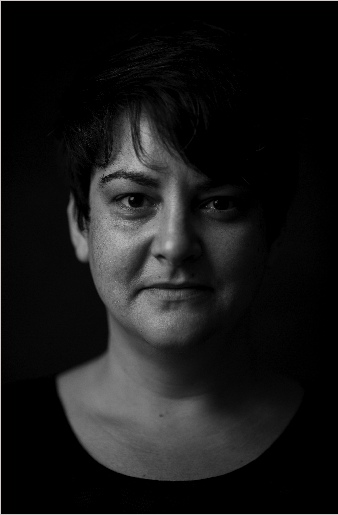
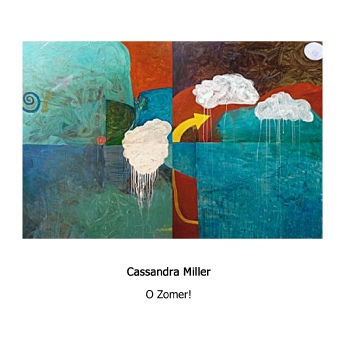
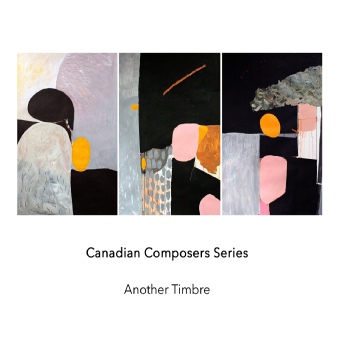
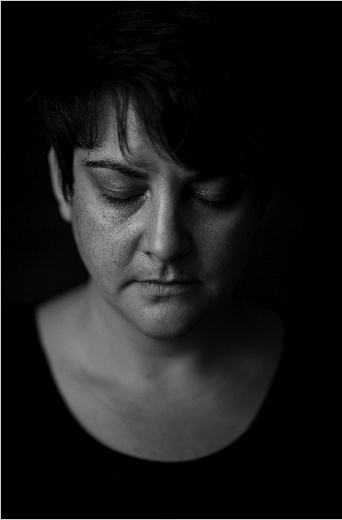
Cassandra Miller,
photo by Andrew Parker
Cassandra Miller,
photo by Andrew Parker
For a special offer on all 10 CDs in the Canadian Composers Series, go here